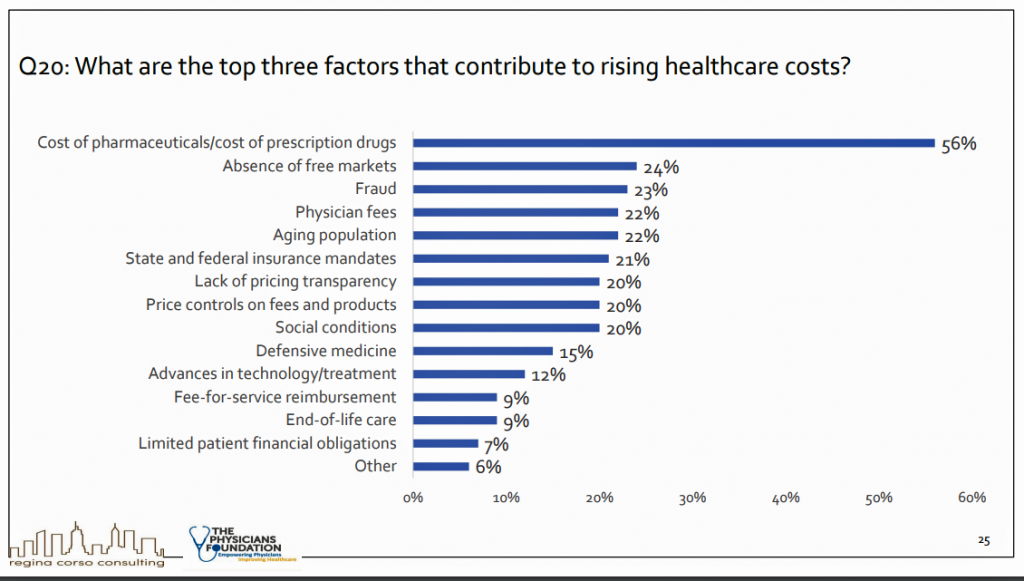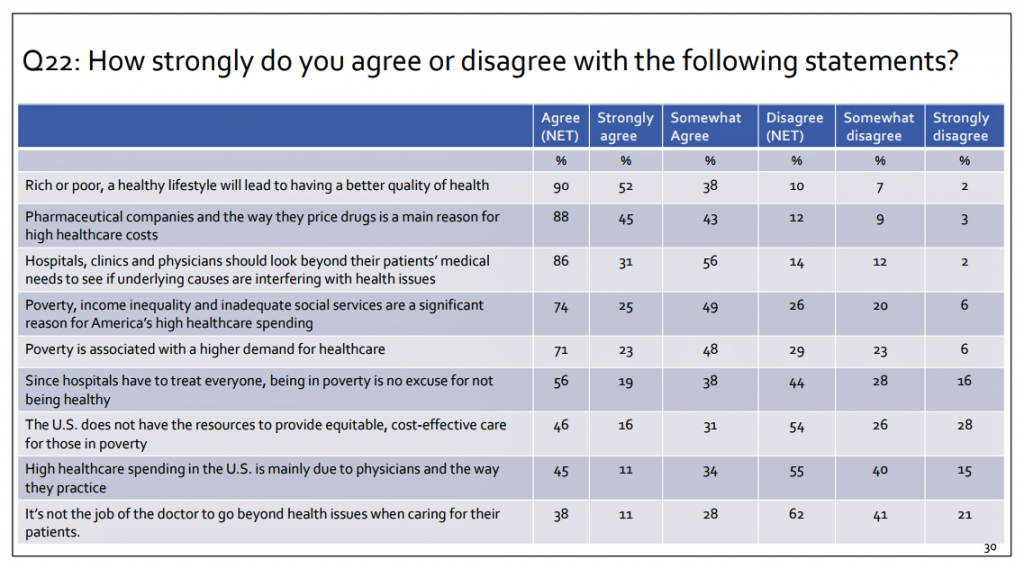
U.S. consumers feel positive about the roles of technology and social determinants in improving healthcare, but are concerned about costs, according to the 2017 Patient Survey Report conducted for The Physicians Foundation.
The survey gauged patients’ perspectives across four issues: the physician-patient relationship, the cost of healthcare, social determinants of health, and lifestyle choices.
Two key threads in the research explain how Americans feel about healthcare in the U.S. at this moment: the role of technology and the cost of health care.
First, the vast majority of consumers view technology, broadly defined, as important for their health care. 85% of people say that technological advances will greatly improve quality of care. Specifically, 85% of consumers believe electronic medical records help patient care, 8 in 10 patients think all doctors should provide access to their electronic medical records systems, and three-quarters of people think EMRs will improve the quality of healthcare.
Even as patients see the promise of technology to improve their healthcare, most remained concerned about the costs of that care. Nine in 10 consumers are concerned about how much healthcare costs will affect them in the future. 75% of consumers are concerned with their ability to pay for any medical treatment were they to get sick or injured. Thus, 6 in 10 people sometimes feel they “one sickness away from being in serious financial trouble.”
What’s causing rising healthcare costs? consumers were asked. Above all, people say it’s the cost of prescription drugs, cited by 56% of patients in the survey. Far below pharma costs, patients blame the absence of free markets, fraud, doctors’ fees, aging population, and state and federal insurance mandates for increasing healthcare costs. Technology was cited as a cost driver by only 12% of patients.
This survey was conducted in June 2017 among 1,747 U.S. patients between 27 and 75 years of age who have seen the same doctor at least twice in the past 12 months.
 Health Populi’s Hot Points: This is one of the first consumer surveys I’ve seen to directly address consumers’ views about the social determinants of health (and for that, Physicians Foundation, I’m grateful).
Health Populi’s Hot Points: This is one of the first consumer surveys I’ve seen to directly address consumers’ views about the social determinants of health (and for that, Physicians Foundation, I’m grateful).
Question 21 asked what impact poverty has on healthcare costs: 52% of patients said poverty had an “extreme” or “large” impact on healthcare costs, and 68% of physicians said so.
The second chart demonstrates that nearly all people understand that a healthy lifestyle will lead to having a better quality of health, and most people believe that poverty, income inequity, and inadequate social services are a significant reason for America’s high healthcare spending.
86% of consumers agreed that healthcare providers should look beyond patients’ pure medical needs to find underlying causes for health issues.
Virtually all patients said that behavioral and mental health issues like stress, anxiety, depression and trauma; health behaviors such as smoking and substance abuse; food issues and nutrition; violence exposure; and, social isolation and engagement, along with financial resource issues, are all important for medical professionals to know about their patients.
It is encouraging to see a majority of U.S. consumers aware of the direct role of social determinants of health and lifestyle behaviors as central to individual and public health. Now, let that grassroots knowledge trickle upward to health policy reformers at the Federal, State, and local levels.
The post What Patients Feel About Technology, Healthcare Costs and Social Determinants appeared first on HealthPopuli.com.
What Patients Feel About Technology, Healthcare Costs and Social Determinants posted first on http://drugsscreeningpage.blogspot.com/
No comments:
Post a Comment